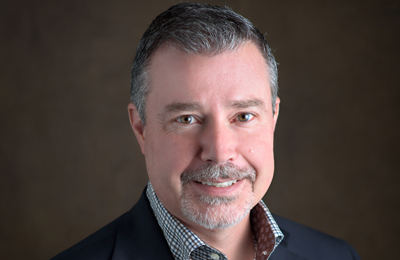As we head into the holiday season, I’ve been thinking a lot about civility.
For many, the holidays are for spending time with friends and family, sharing meals and conversation, connecting with loved ones and reconnecting with those we don’t see often enough.
As you gather over the next couple of months, I hope you will join me in reflecting on the state of civility in our world. The COVID-19 pandemic has taken quite a toll on us, and I believe one of the things that has been eroded is our collective sense of civility. We see it in the news, we see it on television, and I can assure you we are seeing it at our St. Charles hospitals and clinics.
According to Thomas Spath and Cassandra Dahnke, the founders of the Institute for Civility in Government: “Civility is claiming and caring for one’s identity, needs and beliefs without degrading someone else’s in the process.” The organization’s website goes on to say:
Civility is about more than just politeness, although politeness is a necessary first step. It is about disagreeing without disrespect, seeking common ground as a starting point for dialogue about differences, listening past one’s preconceptions, and teaching others to do the same. Civility is the hard work of staying present even with those with whom we have deep-rooted and fierce disagreements. It is political in the sense that it is a necessary prerequisite for civic action. But it is political, too, in the sense that it is about negotiating interpersonal power such that everyone’s voice is heard, and nobody’s is ignored. And civility begins with us.
A confluence of factors seems to have brought out the worst in us: The pandemic has pushed us past our limits. Our leaders practice incivility in public, modeling it and normalizing it for the rest of us. The internet allows some to hide behind their keyboard and anonymously spew hatred toward others.
We are more divided than ever, for many reasons. The pandemic and the politicization of our response certainly has not helped us grow closer, despite a promising start in the spring of 2020.
There is no doubt COVID-19 has made life difficult and caused stress. But I also see a nation that has lost its focus. We’ve allowed our differences in opinion to push us apart, when we should be using them as a starting point for dialogue, understanding and solutions. We should be accepting and embracing our differences, because it is our differences that will make us stronger.
Enough is enough. If our leaders can’t figure this out, then we must do so for ourselves.
This holiday season, I have a call to action, and it’s simple: Talk to people. Talk to people who see the world differently than you do. Explore your differences. Seek to learn from them and to understand each other. And do the same thing when you’re online. If you’re on social media, be sure you’re contributing something constructive to the conversation. Better yet, be sure you’re listening and seeking to understand before you demand to be understood.
And in all your interactions, I would encourage you to practice civility. Only then will we grow as individuals and grow closer together as people.
It begins with us!
Sincerely,
Joe


